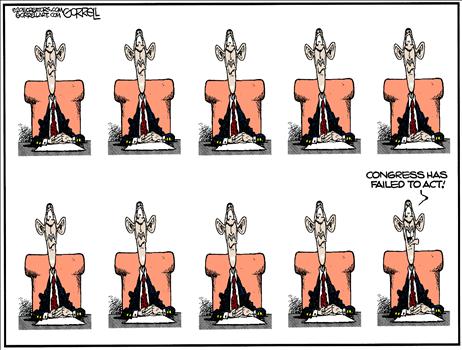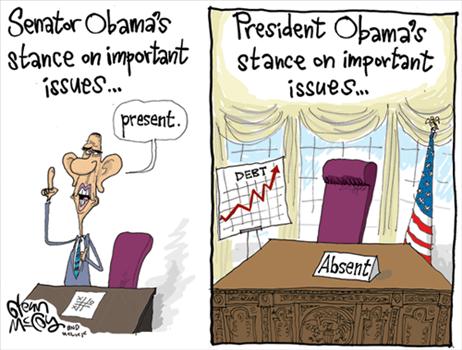The Founders set up three co-equal branches of government. They presumed the initiative would rest with the legislative branch, which would determine the laws. The executive branch’s duty was primarily to carry out those laws. Throughout our early history, most of the presidents recognized that distinction; rarely did one come to the office with a broad agenda. That doesn’t mean we didn’t have forceful presidents at times. Washington, just by his stature, brought stability to the new nation. Jackson sought to impose his will in a number of ways, so much so that a rival political party arose, the Whigs, that had as its unifying feature the unseating of “King Andrew.”
Yet someone like Jackson was the exception. It wasn’t until Theodore Roosevelt that we had anyone pushing a number of specific programs from the start. He was then dwarfed by Woodrow Wilson, who in turn looked pale compared to FDR, who then gave up his crown as the most active president when LBJ fostered his so-called Great Society.
We have a president currently who is an odd mixture: his agenda is far-reaching; his goal was to transform America as we know it. Yet at times he is strangely silent when it comes to advocating specific solutions. Whenever something is politically radioactive, he steps back and lets Congress take the lead . . . and the blame.
Don’t be confused by this; it’s not respect for the original intent of the Founders. He would be another King Andrew if he could. He’s just very adept at sidestepping anything that might hurt his chances for reelection, and if there’s one thing at which he excels, it is passing the buck. This is not a new strategy for him; he has done it in the past as well, and this is merely a continuation of that master strategy:
In the Illinois Senate, he was known as Senator Present, as he avoided as many controversial votes as possible. As a United States Senator, he spent more time running for president than he did carrying out the duties of his office. Now, as president, he absents himself whenever politically expedient. Frankly, I wish he’d practice the disappearing act more often. It would help us return to the Founders’ vision.


